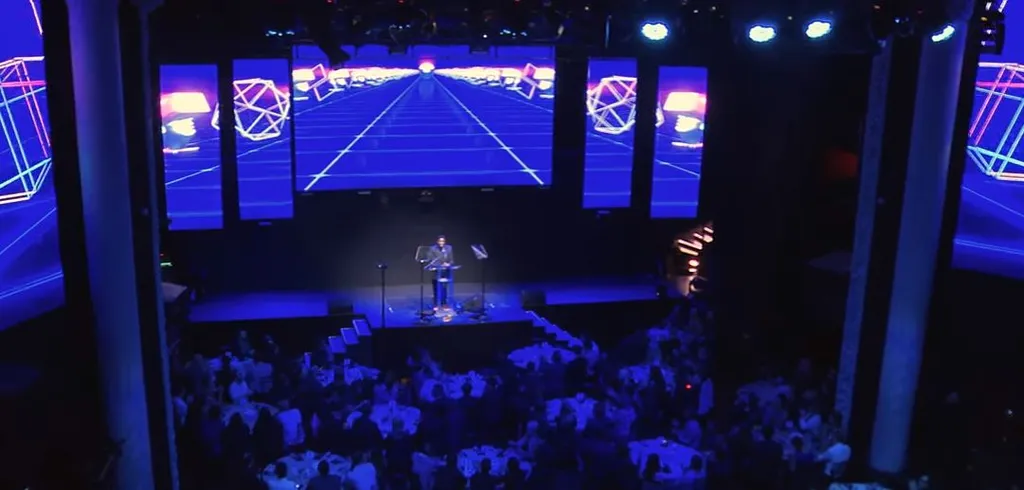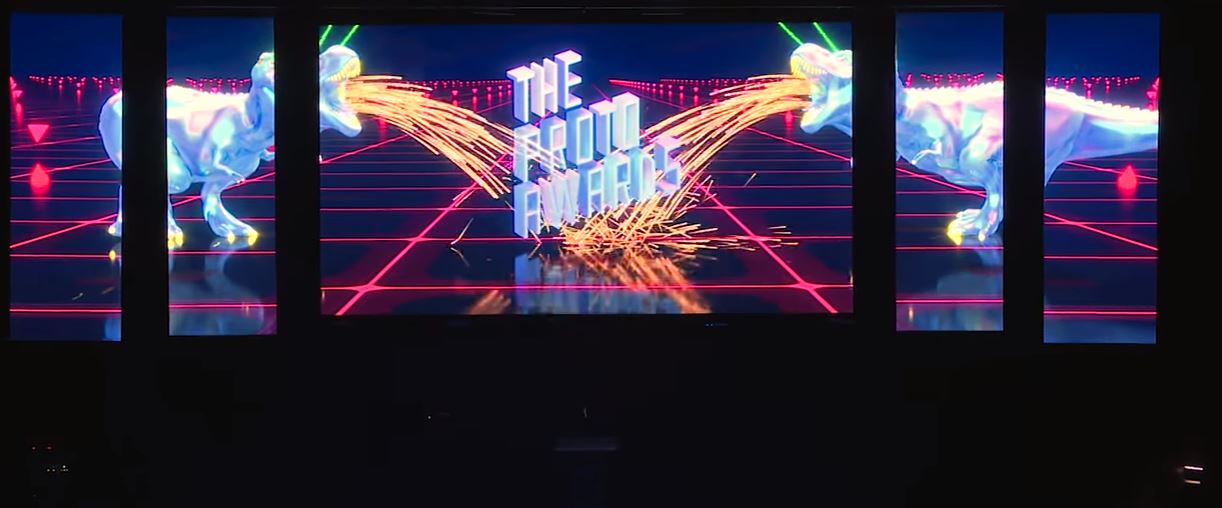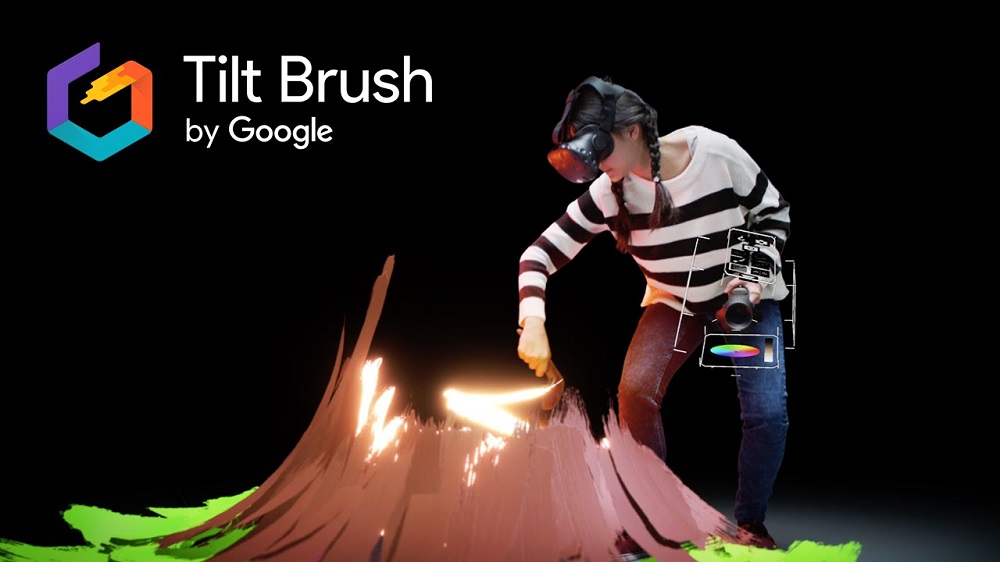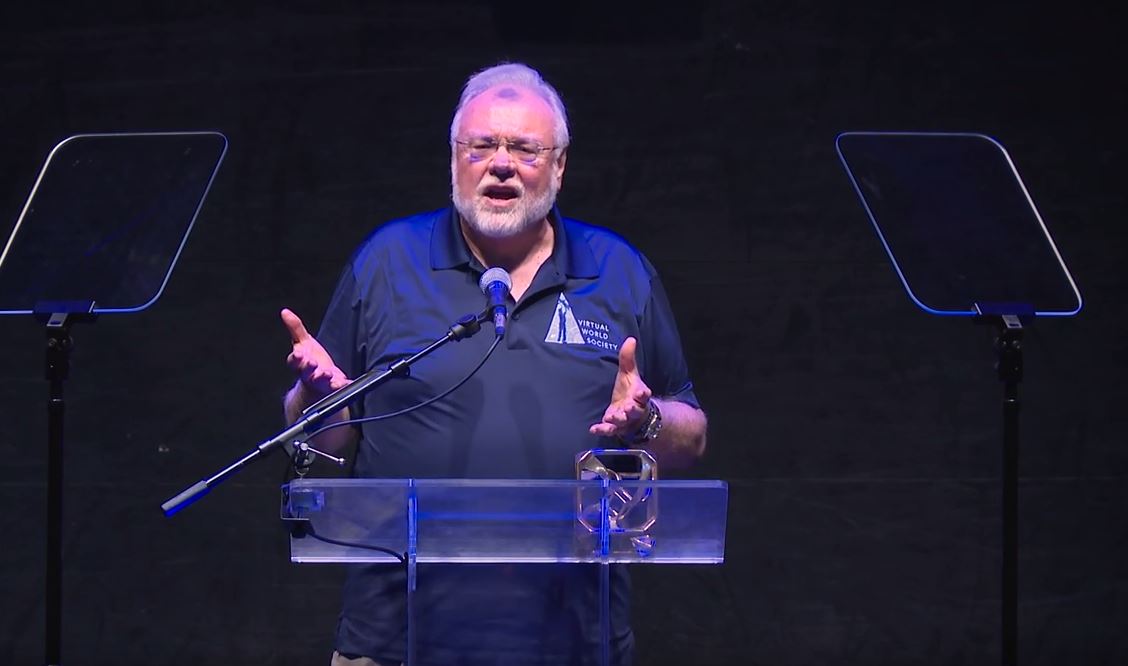If there was a theme for this year’s Proto Awards, the annual event celebrating excellence within the Virtual Reality (VR) community, it would be the sense of arrival. With the release of the Oculus Rift, HTC Vive, and (s00n) the PlayStation VR, as well as enthusiastic press from both specialist and mainstream publications, VR is no longer on the verge of emerging. Instead, this past Saturday night’s award show made it clear that the VR community is readying itself for the future of their technology, the real future.
I attended the Proto Awards and had the opportunity to chat with about the present and future plans on VR’s currently largest award event.
Outside of Capitol Records in the historic Avalon Hollywood, the Proto Awards felt perfectly situated — which is a little weird considering that the techy nature of the show would probably feel more appropriate in the neighboring Bay Area of Silicon Valley. But Los Angeles, as the epicenter of film, television, music, and hub to a robust independent video game community, feels like VR’s once and future home in a way.
“I love that the medium itself has retained a collegial atmosphere among the people who make it. [VR’s] a very tight-knit community because a lot of us had seen each other grow-up professionally in this space from when there was no money in it and it was only about passion,” says Adam Levin, Executive Producer of the Proto Awards.
Levin’s comment regarding the VR community is shared by the founder of the Proto Awards, Jonnie Ross.
“Cosmo [Scharf, co-founder of Visionary VR and VRLA] and I were on a road trip up north when I blurted out the idea that we could create the Oscars of VR,” Ross told me in the parking lot outside the Avalon. It was after the show, and the most quiet location we could find for the interview. “We ended up pitching the show to Oculus because we needed to place it in proximity to an actual developer and we heard rumblings of the first Oculus Connect…they thought it was a great idea and they said ‘We’ll send you our VIPs!’”
Read More: The Full List of Winners from the 2016 Proto Awards
However, Ross is quick to explain that in terms of the show’s guidance and direction, Oculus was completely hands off. “Of course they needed to be completely hands off and can’t have anything to do with it since we were creating a platform agnostic event. But they told people about [The Proto Awards] and helped with attendance, and that’s kind of how the first Proto Awards took place opposite Oculus Connect.
Amid the Cyberpunk aesthetics of neon lights and geometric lines, I made my way to my table atop the mezzanine. I was flanked on either side by VR industry insiders, one of them was a team nominated for the Best Live-Action Experience award that night. The Avalon, normally a hip nightclub, was transformed into a glitzy awards gala that felt like the best of GDC and Hollywood.
Our host for the night was comedian Ron Funches, who also starred in a charming opening video where early VR tech like the Video Boy and the Oculus DK1 were reminiscing about when they used to be relevant (embedded above.) The video was a hit for its in-jokes and references, but became a thematically relevant introduction to the night’s events. The night of the Proto Awards I learned a lot about the surprisingly long history of VR, and how it was all leading up to 2016. “This is our entrance as an industry,” I overheard a speaker on stage announce while trying to find my seat in the dark.
The first Proto Awards took place in 2014 and was hosted by Silicon Valley’s Thomas Middleditch. A hosting choice maybe too on-the-nose for such an event, but the choice of using nerdy celebrities seems to have paid off – especially with the 2016 awards. Funches hosted with much fun and grace, both awed by the VR community and humored by some tech stereotypes (the first award winner accepted the prize in a hoodie).
Funches was even gracious enough to not lean too heavily on Oculus’ embattled founder Palmer Luckey (though he didn’t leave the show completely unscathed either). The show has come a long way since the halcyon days of 2014, trading up 3D printed awards for physical trophies designed by a talented pair of designers from Disney, and moving out of the more classical Blossom Ballroom for the hip Avalon.
I asked Ross if there was anything he ultimately wants to get out of the Proto Awards. “We’re not really approaching the Proto Awards as something that we want to get something out of. I think it’s more of an opportunity to do something right by the community,” Ross tells me, echoing Levin’s comments from earlier. “Someone’s gonna do this, and it they do it, it might end up being like a bunch of other industry events and might have an elitist vibe, or corporate leaning- it could be a thing that isn’t really true to the moment…[The award show] was never an ambition, but a sense of responsibility.”
The idea for a VR awards show might have seemed a little premature three years ago when the Proto Awards debuted – but if there isn’t encouragement at the early stage, will there ever be? No, the Proto Awards needed those early years to figure out how to handle Saturday night, where rapid change was evident.
To put things into perspective, I was relieved to have tried tonight’s top winners – Tilt Brush and Space Pirate Trainer – when I attended both GDC and E3 this year, but I still found myself having experienced just a fraction of the honorees at Saturday night’s awards. The amount of VR experiences that exploded to the scene in less than a year is staggering.
On stage, the awards that most interested me were the ones that had nothing to do with entertainment. Apollo 11 VR won the award for Best Educational Experience, and CEO David Whelen went on stage to give an impassioned speech of how he hopes his VR simulator inspires the next generation of real astronauts. But amid the Fantastic Contraptions and Raw Datas was the shadow of the real mainstream, of corporate entities far larger than this tightknit community of developers and pioneers.
“Because here we are at the birth of this thing, we know [VR] is going somewhere, we know it’s going to actually matter for people, and we know it’s a double-edged sword. So the Proto Awards are an opportunity to spin the wheel in a positive direction,” Ross answers in response to my questions about the future of the Proto Awards as VR heads into its own future.
The Founder Award, awarded to achievements of longtime contribution to VR, was awarded to Dr. Thomas A. Furness III, the “Grandfather of Virtual Reality.” His work with human interface technology back when he was working for the United States government paved the way for all kinds of VR and AR technology. Like Whelen, Furness stressed the need to use this technology for good, for education and the poor, and not just for aesthetic purposes. Furness might as well have been fighting for VR’s soul.
“These are the Good Old Days of VR” the team of Tilt Brush recounted during their Best Overall acceptance speech. Now that VR is here, it will be at the mercy of forces far more powerful than this interconnected group of developers and enthusiasts. While everyone at the Proto Awards will no doubt continue to mold and shape the direction of VR as an endlessly innovative piece of technology, there is also a sense that VR will not look in five years the way it does tonight.
At the end of the night I joked with Ross asking him, “How long until Steven Spielberg wins a Proto?” and the very real possibility of that thought hung overhead. For now though, the Proto Awards as well as the VR Community are more than happy to celebrate the achievements of their friends and peers, and with VR out in the open in 2016, this might as well be the first Proto Awards for all future Proto Awards.
Matt Kim is an entertainment and technology journalist with work appearing in other publications such as Inverse, VICE, Kill Screen, and more. Follow him on Twitter: @LawofTD.






























